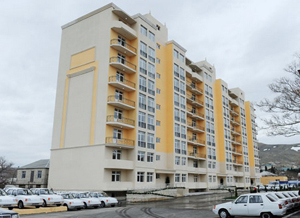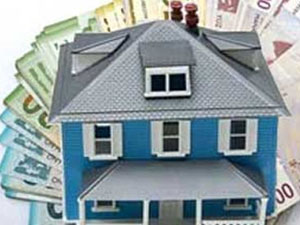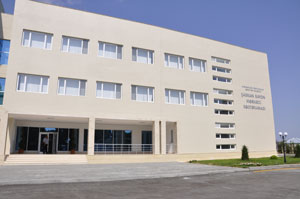Home page
» LAST 10 YEARS
» Improvement of social security and social infrastructure
Improvement of social security and social infrastructure Addressed social assistance One of the most important programs implemented for strengthening of social security and to improve the material condition of low income social strata is the creation of the mechanism of addressed social assistance. This mechanism is regulated by law signed by the President of Azerbaijan on October 25, 2005. The main purpose of the law is to regulate allocation of financial aids to families with less average monthly income for each member of the family by the state. According to this law families with low average income per person due to reasons not depending on them (absence of labour ability of family members, registration of able-bodied family members as unemployed at the relevant executive authority, death, considering by the court as missing or dead, deprivation of liberty, absence of information on location of family member) are entitled to addressed social assistance. The number of poor fell by more than 5 times Diversification of the economy, the sustainable development in the non-oil sector of and the creation of hundreds of thousands of new jobs, the consequent increase of average monthly income of the population in parallel with implementation of addressed social assistance mechanism in the country allowed to decrease in the level of poverty from year to year. According to official statistics of the State Statistics Committee the poverty level in 2003 was 44.7%, 40.2% in 2004, 29.3% in 2005, 20.8% in 2006, 15,8% in 2007, 13.2% in 2008, 10.9% in 2009, and 9.1% in 2010, and 7.6% in 2011. Thus, in the last eight years the number of poor population decreased by 5.2 times. According to the information of the Ministry of Labour and Social Security for 2011 the number of families receiving social assistance in the country was about 132 thousands. The addressed social assistance to families with per capita amounted of 24 manats per month, and average per family 105 manats. For purposes of assessment of addressed social assistance mechanism and study of its impact on poverty according to the results of monitoring carried out on the 6 660 households in the country within the World Bank’s “Project of the pension and social security, it was defined that observation of the principle of addressing assignments was up to 90% and this figure was assessed as one of the best results in the application of social support in countries, which applied this mechanism. In addition to addressed social assistance in Azerbaijan, a new state program On the social rehabilitation of low-income families”, which covers the period of 2011-2012, was adopted. The purpose of this program is supporting low-income families in establishing of their small business, family-peasant farms by providing single financial aid by the state. The number of low-income families, as a result of the implementation of the program, is expected to decline further. It is planned in the future to remove the dependence of low-income families from state aid by expanding the scope of this program. Social housing (mortgage)  One of the programs on the improvement of citizens\' social status is directed for obtaining of housing by certain social groups under acceptable conditions. For this purpose, the social mortgage programs have begun in recent years. Social housing is one of the most important social programs, and the purpose of this program is the allocation of low percentage long-term housing bank loans to certain social groups at the expense of the state. Although social mortgage program has launched in recent years, the interest in it is rapidly increasing. At present, the volume of state budget funds allocated for this program is 20 million, but from the Central Bank, responsible for the implementation of this program, believes that these funds are not sufficient to meet the growing demand and in the future more funds may be allocated to this sector. At the same time discussion on easing of the conditions of the social mortgage and decreasing the interest rate further is carried out. The annual interest rate of the social mortgage loans financed by Azerbaijan Mortgage Fund under the Central Bank is 4%. The maximum period for repayment of loans is 30 years. Rules of preferential mortgage in Azerbaijan are regulated by law approved by the Decree of the country\'s President in January 23, 2007. As social groups for receiving of such preferential loans are young families and military servants. This program is a part of the implementation of state policy aimed at supporting young people. Pension reform and sustainable growth Foreign donors and partnership with NGOs The Government of Azerbaijan has close partnership with international organizations and donors, as well as local NGOs (non-governmental organizations) within the framework of strengthening the social protection of population, too. The five-year program off Social Economic Development (SEDA) financed jointly by the U.S. Agency for International Development (USAID) and the Government of Azerbaijan, is one example of such a partnership. SEDA is aimed at support of community-based infrastructure projects and SEDA’s activity is directed at giving impetus to the socio-economic development at the regional level in Azerbaijan by strengthening the participation of interested parties in nomination of programs for the socio-economic strategies and the priorities in specially selected target regions and outside of them. SEDA implements is programs in close cooperation with central and local agencies of the Government of Azerbaijan, as well as key government partner of SEDA, the Ministry of Economic Development, as well as the Presidential Administration, Cabinet of Ministers, the State Council on Support to NGOs, as well as the activities provided by the regional executive authorities and municipalities where SEDA carries out its activities. Within the framework of these programs in a number of regions grants are allocated to local community groups, small entrepreneurs for creation of local infrastructure in rural areas and business development. More than 2 new schools, hundreds of hospitals ...  In order to increase social welfare in the country the development and reconstruction of social infrastructure is being implemented. In the last few years, more than 2,200 high schools, more than 400 new, modern hospitals, 34 Olympic centres were built. According to information by 2012, construction of about 400 more new schools, 10 Olympic complexes and new hospitals throughout the country is going on. Also, on the basis of personal instructions of the President, works for the increasing of the number of kindergartens, reconstruction and modernization of the old ones are carried out. The social-oriented programs implemented and being carried out, a sharp decline in the level of poverty, the funds directed to projects of social infrastructure in the country aimed at strengthening the social security system.
|
